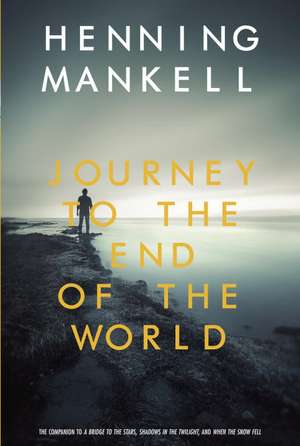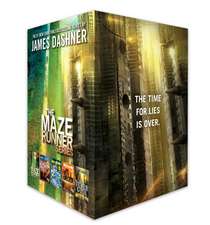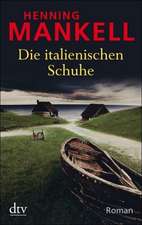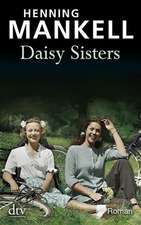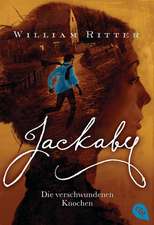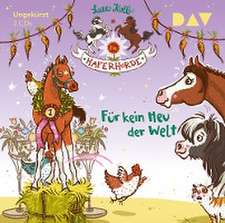Journey to the End of the World
Autor Henning Mankell Traducere de Laurie Thompsonen Limba Engleză Paperback – 31 dec 2010 – vârsta de la 12 ani
Joel's life takes a turn, but nothing like he had anticipated. Joel and his father are unexpectedly faced with an aspect of their past and emotional wounds resurface. Can their relationship survive this complex situation, and the very different ways in which they respond?
Preț: 64.97 lei
Nou
Puncte Express: 97
Preț estimativ în valută:
12.44€ • 13.51$ • 10.45£
12.44€ • 13.51$ • 10.45£
Carte disponibilă
Livrare economică 31 martie-14 aprilie
Preluare comenzi: 021 569.72.76
Specificații
ISBN-13: 9780385734981
ISBN-10: 0385734980
Pagini: 194
Dimensiuni: 137 x 203 x 15 mm
Greutate: 0.18 kg
Editura: Delacorte Press
ISBN-10: 0385734980
Pagini: 194
Dimensiuni: 137 x 203 x 15 mm
Greutate: 0.18 kg
Editura: Delacorte Press
Notă biografică
Henning Mankell is the prizewinning and internationally acclaimed author of novels for both adults and young people. His Inspector Wallander mysteries dominate bestseller lists across Europe. Born in a village in northern Sweden, he divides his time between Sweden and Africa, where he works with AIDS-related charities. He is also director of Teatro Avenida in Maputo, Mozambique. Mankell's companion novels about Joel and his father are A Bridge to the Stars, Shadows in the Twilight, and When the Snow Fell.
Extras
One
Joel was halfway down the hill just past the vicarage when his chain came off. He was so surprised that he swerved and lost control of his bike. He crashed into the hedge round the horse dealer's garden and flew headfirst into some currant bushes. One cheek was badly scratched, and his left knee was bruised. But when he scrambled to his feet he was able to stand up and rescue his bike from the hedge. He'd made a big hole in it. As the horse dealer had a fiery temper, Joel rapidly wheeled his bike away and leaned it against the vicarage fence.
It was an afternoon in the middle of May. There were still patches of snow left in the shadow of house walls and on the verges. Spring had not yet brought any warm weather with it. But every afternoon after school Joel took his bike and rode through the streets of the little town. He felt worried and restless. What was going to happen shortly? When he left school?
A few days after he'd had that dream about the river with boiling water, he'd asked Samuel. He'd prepared himself carefully. They usually had pork and fried potatoes on a Sunday, but as it was Samuel's favorite, Joel had made it for that night's dinner even though it was a Tuesday. Joel knew that the best moment to take up an important matter with Samuel was when he had just finished eating and pushed his plate to one side.
And that moment had come. Samuel put down his fork, wiped his mouth and slid his plate away.
"We have to make up our minds," Joel said.
Although his voice had broken now, it sometimes happened that things he said came out like a squeak or in falsetto. He spoke slowly and tried to make his voice as deep as possible.
Samuel was usually tired when he'd finished eating. Now he blinked and looked at Joel.
"What do we have to make up our minds about?" he asked.
Samuel seemed to be in a good mood, Joel thought. That wasn't always the case. Samuel could sometimes be peevish, and in that case Joel knew there was hardly any point in trying to discuss something important.
"What we're going to do when I've left school."
Samuel smiled.
"What sort of a report are you going to get?"
Joel didn't like Samuel answering a question by asking another one himself. It was a bad habit that lots of grown-ups had.
But he had prepared himself thoroughly. Joel's school marks were always important to Samuel.
"I'll get better marks than last autumn," he said. "I'll be in the top three for geography."
Samuel nodded.
"When are we going to move?" Joel asked. He must have asked Samuel that question at least a thousand times before. Nearly every day, year after year. The same question. "When are we going to move?"
Samuel looked down at the blue tablecloth on the kitchen table. Joel thought he might as well continue.
"You're not a lumberjack," he said. "You're a sailor. When I've left school we won't need to stay here any longer. We can go away. We can sign on for the same ship. I'm fifteen now. I can also be a sailor."
Joel waited for an answer.
But Samuel continued staring down at the tablecloth. Then he stood up without a word and put on the coffee water. Joel wasn't going to get an answer, that much was obvious.
He suddenly felt angry.
He'd made a big effort and prepared Sunday food even though it was only Tuesday, but still Samuel couldn't give him a sensible answer.
He thought he ought to swear and tell his father a few home truths. Tell him he had an obligation to answer now. Joel had no intention of asking the same question another thousand times.
But he didn't swear. He cleared away the plates, scraped the remains into the slop bucket and put the crockery in the sink.
"I'm going out," he said.
"Don't you have any homework?" asked Samuel, without looking up from the coffee water that was just coming to the boil.
"I've done it already," Joel said. "Besides, soon there won't be any more homework."
Joel waited. But in vain. Samuel said nothing else.
Joel took his jacket and went downstairs.
No answer this time either.
Joel thought about this the following day as well, when he was mending the chain on his bicycle. He hadn't put his question to Samuel again, but had the impression that his dad was thinking it over. Why that should be the case, Joel had no idea. But that was what he suspected, and the feeling was very strong.
It also worried him. When Samuel said hardly anything and seemed to be lost in thought, he could sometimes lapse into one of his phases. When he would just disappear, and then come home drunk late at night. It was a long time since that had happened last, but Joel knew it would happen again. Sooner or later. And that was something he always dreaded. Being forced to go out looking for Samuel, and then dragging him home when he was too drunk to walk without help.
Joel tried to wipe the oil off his bicycle chain using a sheet of newspaper that happened to be blowing past.
Let's hope it doesn't happen at the end-of-term ceremony, he thought. That Samuel turns up at church drunk.
Anything but that.
He turned round and gazed up at the church tower. The clock told him it was high time for him to go home and put the potatoes on to boil. He mounted his bike and started pedaling. On the graveled area behind the petrol station, some boys were dividing into two teams. Several of them were Joel's classmates. He pedaled even harder. He always needed to make the dinner: he'd always been his own mum. And Samuel's as well, sometimes.
Joel was halfway down the hill just past the vicarage when his chain came off. He was so surprised that he swerved and lost control of his bike. He crashed into the hedge round the horse dealer's garden and flew headfirst into some currant bushes. One cheek was badly scratched, and his left knee was bruised. But when he scrambled to his feet he was able to stand up and rescue his bike from the hedge. He'd made a big hole in it. As the horse dealer had a fiery temper, Joel rapidly wheeled his bike away and leaned it against the vicarage fence.
It was an afternoon in the middle of May. There were still patches of snow left in the shadow of house walls and on the verges. Spring had not yet brought any warm weather with it. But every afternoon after school Joel took his bike and rode through the streets of the little town. He felt worried and restless. What was going to happen shortly? When he left school?
A few days after he'd had that dream about the river with boiling water, he'd asked Samuel. He'd prepared himself carefully. They usually had pork and fried potatoes on a Sunday, but as it was Samuel's favorite, Joel had made it for that night's dinner even though it was a Tuesday. Joel knew that the best moment to take up an important matter with Samuel was when he had just finished eating and pushed his plate to one side.
And that moment had come. Samuel put down his fork, wiped his mouth and slid his plate away.
"We have to make up our minds," Joel said.
Although his voice had broken now, it sometimes happened that things he said came out like a squeak or in falsetto. He spoke slowly and tried to make his voice as deep as possible.
Samuel was usually tired when he'd finished eating. Now he blinked and looked at Joel.
"What do we have to make up our minds about?" he asked.
Samuel seemed to be in a good mood, Joel thought. That wasn't always the case. Samuel could sometimes be peevish, and in that case Joel knew there was hardly any point in trying to discuss something important.
"What we're going to do when I've left school."
Samuel smiled.
"What sort of a report are you going to get?"
Joel didn't like Samuel answering a question by asking another one himself. It was a bad habit that lots of grown-ups had.
But he had prepared himself thoroughly. Joel's school marks were always important to Samuel.
"I'll get better marks than last autumn," he said. "I'll be in the top three for geography."
Samuel nodded.
"When are we going to move?" Joel asked. He must have asked Samuel that question at least a thousand times before. Nearly every day, year after year. The same question. "When are we going to move?"
Samuel looked down at the blue tablecloth on the kitchen table. Joel thought he might as well continue.
"You're not a lumberjack," he said. "You're a sailor. When I've left school we won't need to stay here any longer. We can go away. We can sign on for the same ship. I'm fifteen now. I can also be a sailor."
Joel waited for an answer.
But Samuel continued staring down at the tablecloth. Then he stood up without a word and put on the coffee water. Joel wasn't going to get an answer, that much was obvious.
He suddenly felt angry.
He'd made a big effort and prepared Sunday food even though it was only Tuesday, but still Samuel couldn't give him a sensible answer.
He thought he ought to swear and tell his father a few home truths. Tell him he had an obligation to answer now. Joel had no intention of asking the same question another thousand times.
But he didn't swear. He cleared away the plates, scraped the remains into the slop bucket and put the crockery in the sink.
"I'm going out," he said.
"Don't you have any homework?" asked Samuel, without looking up from the coffee water that was just coming to the boil.
"I've done it already," Joel said. "Besides, soon there won't be any more homework."
Joel waited. But in vain. Samuel said nothing else.
Joel took his jacket and went downstairs.
No answer this time either.
Joel thought about this the following day as well, when he was mending the chain on his bicycle. He hadn't put his question to Samuel again, but had the impression that his dad was thinking it over. Why that should be the case, Joel had no idea. But that was what he suspected, and the feeling was very strong.
It also worried him. When Samuel said hardly anything and seemed to be lost in thought, he could sometimes lapse into one of his phases. When he would just disappear, and then come home drunk late at night. It was a long time since that had happened last, but Joel knew it would happen again. Sooner or later. And that was something he always dreaded. Being forced to go out looking for Samuel, and then dragging him home when he was too drunk to walk without help.
Joel tried to wipe the oil off his bicycle chain using a sheet of newspaper that happened to be blowing past.
Let's hope it doesn't happen at the end-of-term ceremony, he thought. That Samuel turns up at church drunk.
Anything but that.
He turned round and gazed up at the church tower. The clock told him it was high time for him to go home and put the potatoes on to boil. He mounted his bike and started pedaling. On the graveled area behind the petrol station, some boys were dividing into two teams. Several of them were Joel's classmates. He pedaled even harder. He always needed to make the dinner: he'd always been his own mum. And Samuel's as well, sometimes.
